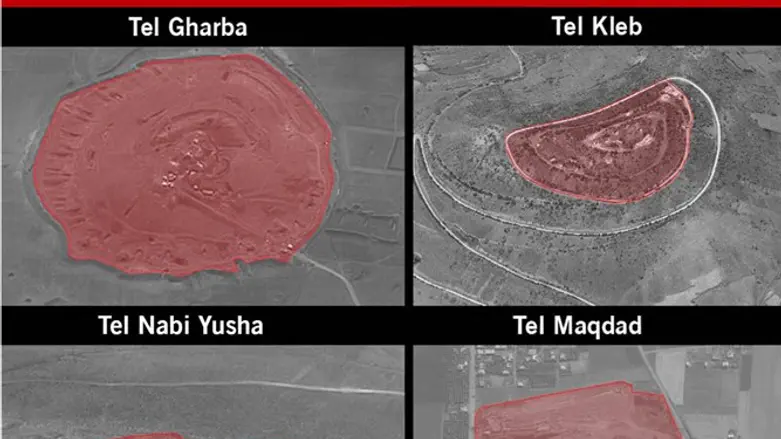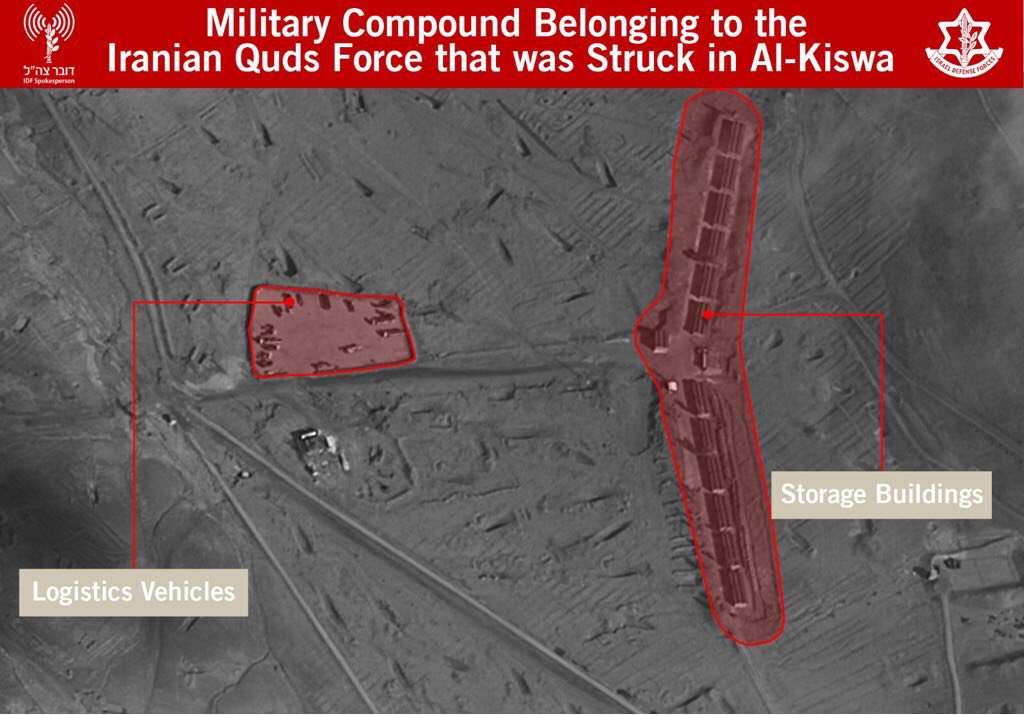
The IDF on Friday morning published aerial photographs of the Iranian sites that were attacked in Syria overnight Wednesday, in retaliation for an Iranian rocket barrage on the Golan Heights.
The photos show the buildings before they were attacked. Among other things, one can see Iranian intelligence sites, a Quds Force military compound in Kiswah and an Iranian logistic site near Damascus.




Photos: IDF Spokesperson's Unit
Israel's strikes on Syria saw 28 planes take part in raids with a total of around 60 missiles fired. According to the Russian military, "28 Israeli F-15 and F-16 aircraft were used in the attack, which released around 60 air-to-ground missiles over various parts of Syria. Israel also fired more than 10 tactical ground-to-ground missiles."
At least 23 fighters, including five Syrian regime troops and 18 other allied forces, were killed in the attacks, the anti-Assad Syrian Observatory for Human Rights said Thursday.
The Britain-based Observatory said the regime troops killed in the strikes included an officer, adding that the other casualties included Syrians and foreigners.
A senior Air Force officer on Thursday revealed new details about Israel's attack on Syria and reiterated that the IDF would continue to attack Iranian targets if needed.
The IDF also published a video of an attack against a Syrian SA22 anti-aircraft battery it attacked in response to Iran launching missiles against IDF bases.
"The air force has been preparing for an attack by the Iranian Al-Quds Force following intelligence information that reached us yesterday, and we failed to identify the launcher before firing it, but it was attacked a short time ago," said the officer.
"The Iranians are motivated to bring their own anti-aircraft to Syria and we will be able to deal with it. We assume that the Iranians have rockets for distances far over 40 kilometers, and we are prepared for them as well. "
The officer noted that the IDF is worried that the Iranians would replace the anti-aircraft batteries that were bombed by Israel by the more advanced S-300 system. "Any battery that threatens our airplanes will be destroyed," he said.
The officer added that the operation was coordinated with Russia. "We announced in advance the operation to the Russians and thus we created an open area for ourselves. We also coordinated with the U.S. as well, of course," he said.
